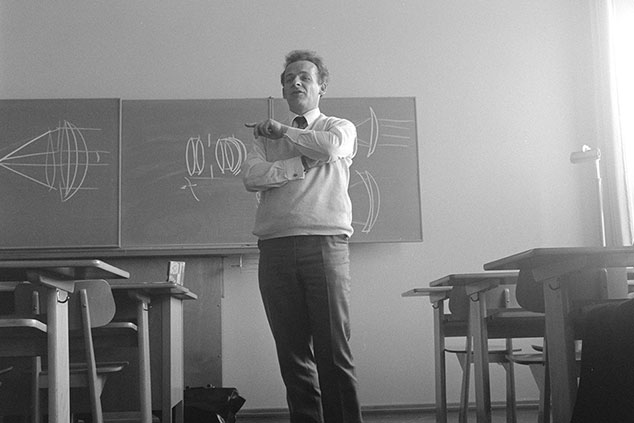Entering a profession such as teaching can offer great career prospects and a competitive salary. In this article, we will ask how much do teachers get paid? From different pay scales, training costs and career progression, there’s a lot to think about. When you choose to become a teacher, you’ll be joining a profession that offers a competitive starting salary with plenty of opportunity for career progression. Here, we give you 10 things you need to know about teacher’s pay.
Teacher Pay Scales
1. Teachers pay scales are based on experience and from region to region, with teachers working in Inner London earning the highest salary. Schools also have more flexibility now to form their own pay policies. This can be determined by your performance, not necessarily how long you have been working in the field.
2. As a newly qualified teacher, you’ll begin on a salary of at least £25,714, or £32,157 in Inner London. As you rise up the pay ranges, you could earn as much as £125,098 working as a headteacher, in Inner London.
How Much Do Teachers Get Paid?
3. The average salary for a Primary School Teacher is £34,500 per year with a starting salary starting at around £24,000. A secondary school teacher can expect to earn around £37,000 per annum. Teaching assistants between £17k – £23k depending on the level you are and any SEN responsibilities. The School Teachers’ Pay and Conditions Document (STPCD), published annually, contains statutory provisions on teachers’ pay which are binding in all local authority maintained schools.
4 Academies, trusts and foundation trusts are able to vary the pay and conditions they offer to their employees. So if you are new to teaching, it is worth checking average salaries to check your entitlement. In 2019, UK ministers agreed a 2.75% raise for all teachers in maintained schools across the board, including those on the unqualified, Main, Upper, and Leadership pay scales.
5. You’ll work long hours. Teachers generally work for 195 days throughout the year and your salary is split over 12 months. This way you still receive an income during the holiday season. You generally work longer than 8am – 3pm. Lots of work is undertaken in your own time, with marking and planning future lessons.

Teacher Benefits and Pension Scheme
6. Teacher benefits include automatic entitlement to the Teacher’s Pension Scheme. If you work with SEN children you may be entitled to an additional allowance of between £2,270 and £4,479 per annum. The job may offer a degree of flexibility in that you can be off during school holidays, if you have a young family and need to be off with them. As you progress, you may be able to work on a job-share with another teacher, where you work 2-3 days a week, offering greater flexibility around family life.
7. There are various routes into teaching depending on your current qualifications. Funding may be available through grants and eligibility and you may also be fortunate to find a school where you will receive a salary and training on the job paid for. Some of the best ways can be to start volunteering within a school to see if like it. Many volunteers have been offered teaching assistant jobs and can then progress through to teacher training and have their training paid for by the school.
Some staff members may be particularly focused on a set age group they wish to work with – for example secondary school or pre-schoolers. All of which will require different training and routes. You can take a self-study course at home to begin working with pre-schoolers, at a cost of around £300, do make sure the course is CACHE recognised. There are many childcare courses around, not all of them legitimate. A nursery team member can expect to start on an annual income of around £19,000 progressing to around £23,000 depending on experience and location.
Teacher Training and Qualifications
8. To start initial teacher training, you’ll need to have a degree, or equivalent qualification. If you do not have a degree – you can do an undergraduate course.
You’ll also need:
- English GCSE grade 4 (C) or above
- Maths GCSE grade 4 (C) or above
- Science GCSE grade 4 (C) or above if you want to teach in primary education
If you do not have the required GCSEs or you have overseas qualifications, you’ll need to show that you have an equivalent level of education.
9. Additional aspects to consider include working as as supply teacher or a self-employed tutor. You may need to pay for your own training, DBS check (Disclosure and Barring Service) certificate’ proves there’s no known reason why you may not work with children, insurance and tax. Supply teachers can expect to earn around £150 per day. You will also need to factor in any office building space that you rent for your tutoring, and/or any transport costs to get to your place of work.
10. There are a number of ways for teacher’s to increase their income. Additional tutoring sessions offering 1:1 help can bring in around £35-£40 per hour. You may also wish to transfer your skills and work abroad or pursue a career as a University Lecturer. Average salaries for University Lecturers range from around £54,000 depending on the location and course you are working.
Anything else I need to know?
Becoming a teacher takes determination and commitment to the job. You’ll be working long hours and taking your work home with you. You may need to run clubs before or after school, take part in parent evenings and prepare work for your next lessons. You may find your emotions get caught up in the job, and it can be hard to walk away. Teaching is a big responsibility but can be incredibly rewarding.
